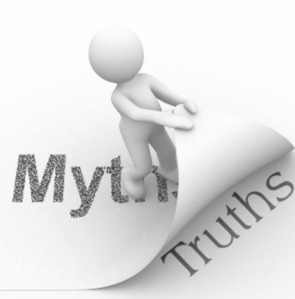Few manufacturing executives in touch with the marketplace would deny that traditional distribution is no longer as reliable as it once was to deliver dependable sales and enduring customer relationships. Why? There are many reasons, but two at the top of the list are:
1.Customers are changing - the Millennial generation shops and buys differently than their Boomer parents, and even Boomer habits and expectations are changing in the digital world
2.Technology has disrupted the distribution model, as it has disrupted everything else in its wake - the experiences, access, transparency, ability to compare and socialize at any moment from any location - dislodging practices that were deeply-rooted for decades
As a result, manufacturers of goods and services are being forced to recast not only distribution itself, but also the entire surrounding ecosystem:
•Product - must offer a real benefit worth the price and any "fine print"
•Service - must be always available, accurate, and helpful
•Channels - must be consistent on all dimensions - as a customer, I want to feel I am dealing with the same brand wherever I look for you - whether online, on my mobile device, or in person
•Data - must be used in ways that are respectful and pass the test of being reasonable and value-creating in the customer's eyes
Perhaps most of all, Marketing must be seen as more than an optional cost center that puts sponsorships in place, designs product brochures, supports trade show presence and runs advertising campaigns - a view that persists in many businesses.
Marketing done right can become the function that unifies your business around the customer, and fuels answers to these critical questions:
•Whom do you really want to have as your customers?
•What are their needs, both emotional and rational?
•What are the ways you can meet those needs?
•And do so better than competition, within a good economic and risk/return structure?
Many executives with fabulous accomplishments in the pre-digital world continue to live by a set of beliefs about what marketing is and what it is not. These stand in the way of putting the huge potential of this function to work to meet business goals in the digital world.
To enable marketing to have the impact on your business that it can have, put these myths aside and empower a capable team to help drive growth:
Marketing myth 1: "Brand" and "Advertising" are synonymous.
Truth: Brand defines what your company stands for, and connects people in ways that help them see you as relevant in their lives ... leading to purchase and loyalty. Everything you do is a manifestation of your brand, whether or not you advertise.
Marketing myth 2: Marketing people are creative types, not business people.
Truth: Yes, as in every business function, creativity is demanded. But Marketing today is a technology-driven function that drives P&L, so a close partnership with tech professionals is a must.
Marketing myth 3: Marketing is a cost center.
Truth: Marketing is an investment. Marketing is a leader in creating profitable and persistent revenue growth, by helping to identify the right customers, gather their needs, and provide direction and skills to the organization on how to fulfill those needs.
Marketing myth 4: Product builds, distribution sells, marketing supports.
Truth: Value is created through experiences. It's not just about product bells and whistles, it's about the end-to-end experience of engaging with your brand from pre-sale to post-sale to ongoing servicing and hopefully, future purchases. This means internal silos must be eradicated and collaboration must be a defining attribute of your culture, or your customer will feel the negative effects of self-imposed internal barriers.
Marketing myth 5: Marketing decisions are made on gut.
Truth: Marketing is a data-driven discipline, requiring a special mix of talent and skills to get the right data and use it to create customer experiences that will drive business results

